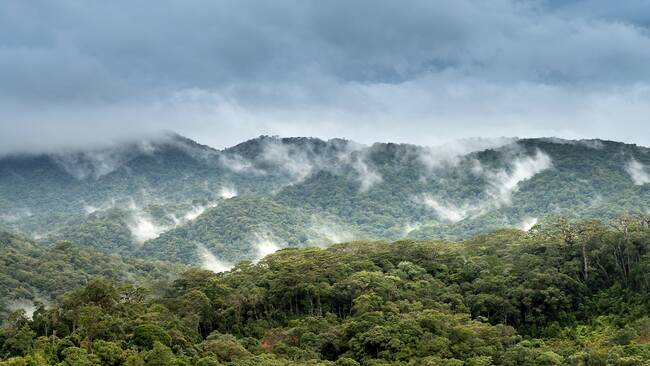Deforestation has changed the rainfall in Brazil, with a delayed rainy season and an extended dry season. In 2015, both the Amazon jungle and the million city of Sao Paolo were hit by severe and prolonged drought.
Brazil, which is one of the world's largest agricultural nations, can be hard hit by the changes. In fact, Bolsonaro's policy, which is shattering tropical rainforest at a rate of two Manhattan each week, may by itself strike back at him. No rain, no harvest.
A gigantic moisture pumpThe Amazon has in several articles been called the world's lungs, but one must also call the tropical forests for the world's accountants.
For the Amazon acts as a giant moisture pump in the atmosphere; it regains precipitation, adds moisture to the atmosphere and contributes rain to surrounding areas.
It has been estimated that the Amazon "moisture pump" produces around 10,000 cubic kilometers of water vapor each year and about a third are transported to the southern parts of South America. See in the video above how rain and water vapor are spread using the rainforests around the world.
Risk to agricultureResearcher Lan Wang-Erlandsson at Stockholm Resilience Center analyzes water flows in the atmosphere, including in the Amazon.
- Shoveling more rainforest can be a no-win scenario for Bolsonaro. Agriculture does not increase overall due to rainfall.
Scientists warn that large-scale deforestation in any of the three major tropical forest zones in the world; especially in the Amazon - can disrupt the global water cycle enough to pose a significant risk to agriculture in Brazil and South America, but also in the United States, and as far away as in India and China.
- When Bolsonaro says deforestation is an internal concern for Brazil, he is completely wrong. The Amazon rainforest is of great importance to all mankind.
Preserved forest benefits the poorScientists are urging the world community to preserve and restore the tropical forests and global water cycles that they regulate. It would help those most threatened by climate change: poor people in rural areas in developing countries. They would get a more stable water supply for their agriculture, suffer from fewer heat waves and be able to take advantage of all the other benefits that the forest provides.
Read more about the World Resources Institute's research here.

